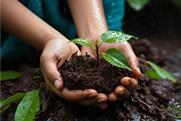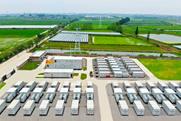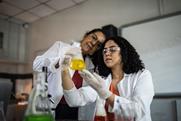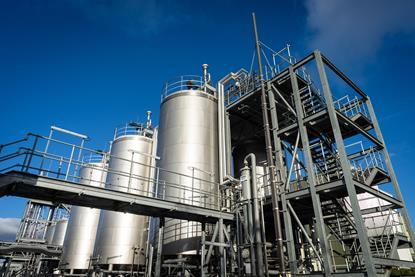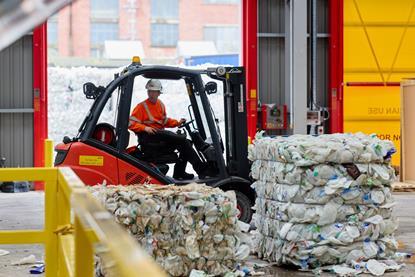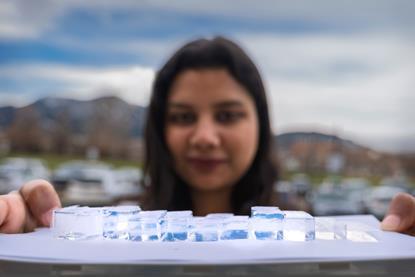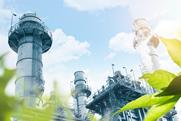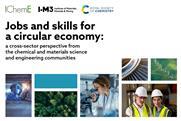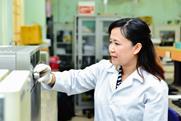Solutions for India's sustainability challenge
At COP29 delegates from countries around the world are meeting to discuss and agree plans to reduce emissions and tackle climate change. In this collection, experts in law, policy, science, finance and education explore the sustainability challenges facing India, and how chemistry can enable the country to meet its ambition of reaching net zero emissions and to deliver its plans for growth and development.
Chemistry will support India’s sustainability ambitions
Chemistry is central to addressing challenges across a range of sectors
Chemistry is paving the path to net zero
From energy and materials to food and transport, the central science is having an impact
How can chemistry help developing countries decarbonise their economies?
The central science offers opportunities for energy, buildings, industry and transport
Creating carbon sinks in India: a law and policy perspective
India’s history of protecting its forests will be vital for its future
Tackling India’s climate change health problems at Scale
A model to put health and wellbeing at the heart of climate action
Sodium-ion batteries could deliver India’s net zero ambitions
The promising energy storage alternative still faces a number of challenges
Building community-centric technology from the ground up
In India’s Uttarkhand state, public engagement has been the key to adopting new technology
Can tax deductions enable sustainable citizen-driven green finance?
India’s income tax framework could provide the means for direct public investment
International lessons for designing India’s emissions trading scheme
How to make sure the country’s cap and trade system succeeds
Teaching chemistry in the context of climate science
Changes to India’s undergraduate curriculum could be transformative
Transforming food waste management in India
Challenges, innovations and the path to reducing waste
Smart sensors can help deliver India’s net zero targets
Metal oxide–polymer composites offer a nanotech sensing solution
More on sustainability from Chemistry World
- Business
Rethinking hydrogen peroxide production
Hydro-Oxy and Addible both aim to transform how industry produces and uses a ubiquitous oxidant.
- Webinar
Textiles in the age of sustainability: alternative methods for fabric dying and treatment
Learn about advances in sustainability of textile production – join us on 31 March
- Business
Funding boost for Grangemouth whisky waste-to-chemicals firms
Governments hope £9 million in grants will help MiAlgae and Celtic Renewables replace oil-refining jobs
- Opinion
Plastic recycling’s perfect storm
Pending policies that demand more recycling cannot offset problems of high costs and competition from cheap virgin polymers
- News
Aria for chemist who wants to tackle key challenge of our age
Chemistry World spoke to Mark Symes, an electrochemist heading up Aria’s geoengineering programme
- Research
Insulating window material prevents heat loss while allowing more light through than glass
Easy to make polymer could be used for energy efficient buildings
- Feature
The Antarctic manganese mystery
RRS Sir David Attenborough scientists are trying to measure the potentially crucial role of ocean manganese, finds Andy Extance. But how do you do cutting-edge science in the inhospitable Southern Ocean?
- Research
Global analysis identifies trends in platform chemical research
Ammonia and methanol lead shift towards greener technologies
- Business
Taking aerogel insulation from spacecraft to living space
Nanoplume’s bio-based materials are super-insulating but also cheap and scalable
- Opinion
Inhaler propellant switch is worth the effort
Memories of a year spent testing new inhaler valve designs
- Opinion
We’ll always have Paris… won’t we?
A decade on from Cop21, the Paris agreement has delivered change, but keeping it on track is getting harder
- Opinion
Don’t blame patients for the emissions of their inhalers
Alternatives with lower global warming potential are out there, but the onus can’t be on those suffering
- Feature
One medical inhaler can have the impact of 30kg of carbon dioxide
Propellants in asthma inhalers produce greenhouse gas emissions equivalent to driving 200 miles, yet most healthcare systems overlook this climate impact. New low-carbon alternatives are in development, Andy Extance reports, but barriers remain
- Feature
Nitrous oxide emissions accelerate as agriculture drives climate threat
With N2O emissions up 40% in four decades, scientists are searching for answers. Anthony King looks at potential solutions to keep fertiliser nitrogen in the soil
- Business
Algenesis cracks diisocyanate problem to make fully bio-based polyurethane
Process combines algal fermentation with flow chemistry and avoids hazardous phosgene
- Opinion
Going round in circles over skills
Closing skills gaps in key professional groups requires collaboration between government, industry and educators
- Webinar
Food and us: the incredible story of how food shapes humanity
Learn about the intricate interplay between our genetic and physical makeup and the food we eat
- Business
BASF begins building huge industrial heat pump for low-carbon steam
When powered by renewable electricity, BASF says system will cut carbon emissions by up to 98%
- Business
Sailing towards recycling composite textiles
Sustainable Extricko is using superheated steam and pressure to recycle intractable materials used in sailing
- Careers
Van Thi Thanh Ho’s mission to build up sustainable chemistry in Vietnam
She’s driving commercialisation and inspiring new generations of scientists with her passion for green technology
- Research
Photocatalytic process converts carbon dioxide into ethylene with 99% selectivity
New process uses light and gold nanoparticles to hydrogenate carbon dioxide into key chemical feedstock
